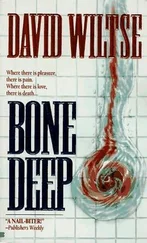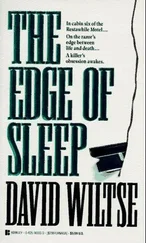David Wiltse - Into The Fire
Здесь есть возможность читать онлайн «David Wiltse - Into The Fire» весь текст электронной книги совершенно бесплатно (целиком полную версию без сокращений). В некоторых случаях можно слушать аудио, скачать через торрент в формате fb2 и присутствует краткое содержание. Жанр: Триллер, на английском языке. Описание произведения, (предисловие) а так же отзывы посетителей доступны на портале библиотеки ЛибКат.
- Название:Into The Fire
- Автор:
- Жанр:
- Год:неизвестен
- ISBN:нет данных
- Рейтинг книги:5 / 5. Голосов: 1
-
Избранное:Добавить в избранное
- Отзывы:
-
Ваша оценка:
- 100
- 1
- 2
- 3
- 4
- 5
Into The Fire: краткое содержание, описание и аннотация
Предлагаем к чтению аннотацию, описание, краткое содержание или предисловие (зависит от того, что написал сам автор книги «Into The Fire»). Если вы не нашли необходимую информацию о книге — напишите в комментариях, мы постараемся отыскать её.
Into The Fire — читать онлайн бесплатно полную книгу (весь текст) целиком
Ниже представлен текст книги, разбитый по страницам. Система сохранения места последней прочитанной страницы, позволяет с удобством читать онлайн бесплатно книгу «Into The Fire», без необходимости каждый раз заново искать на чём Вы остановились. Поставьте закладку, и сможете в любой момент перейти на страницу, на которой закончили чтение.
Интервал:
Закладка:
She took the pen from his fingers.
When she bent over the tabletop to do the form, she showed even more of her breasts.
I could kill you so fast you wouldn't believe it, he thought. I could kill you just like that. Then he remembered the girls in the coal mine.
Or I could kill you real slow. I could take forever.
She seemed to know he was thinking about her because she looked up at him and smiled again.
"I'm fudging things just a little bit," she said. "When I'm finished they'll put you in charge of the place…
'Cause we want to keep a great big hunk like you around town, don't we?"
"Have you ever been in a coal mine?" Cooper asked.
"Darling," she said, "I'll try anything once."
The third letter was different. It didn't exist.
The envelope was the same, addressed to Becker in care of the FBI, and the postmark was still Decatur, Alabama, but Becker opened it to find nothing inside. No letter, no message written in the envelope itself, nothing, not so much as lint.
Had his correspondent simply forgotten to put the clipping from The Times into the envelope? Or was he under sudden pressure and unable to do so for reasons of his own safety? Or had someone taken it out? If the correspondent was dependent on someone else posting his mail, as Becker suspected, then it was possible the man had been caught. And if he had been caught, what had become of him?
Becker held the envelope to the light to see if it was the medium for the message itself. There was no imprint of something having been written without ink. There were no holes in the envelope.
Feeling foolish, Becker lit a match and held the envelope over it to bring out any invisible ink. There was none.
Searching through Jack's room, he came up with a magnifying glass and perused the envelope inside and out.
Again, nothing that he could find. There were vastly more sophisticated ways to hide a message, and to discover it, but Becker was certain his correspondent did not expect him to take the stationery to the FBI lab.
Both messages had been sent to him, not the Bureau. Whatever message there was-, the correspondent expected Becker to find it by himself, and that meant without elaborate scientific help.
And the longer he thought of it, the more convinced Becker became that there was a message there somewhere. If, as he had first suspected, someone had intercepted the message, why mail just the envelope? Why alert the recipient that something had gone wrong? Especially when the recipient of the letter was someone in the FBI? Much safer, and much more likely, that whoever removed the message would have withheld the envelope as well.
Therefore, the message was in the envelope, on the envelope, or the envelope itself and not impossible to decipher because the writer expected Becker to do it.
Closing his eyes, Becker ran his fingers across the surface of the stationery, thinking to find some pattern of bumps, perhaps in the address, a primitive Braille that Becker could comprehend. The envelope was perfectly smooth except for the address and the stamp. He gently rubbed the address again and again. It was rougher than the surrounding paper, which indicated that it had been typed and not laser printed, but if there was any meaning in the roughness, Becker could not detect it.
Perhaps a blind man could, but Becker was not blind and did not have that kind-of touch and the correspondent must have known it.
The only true relief on the front surface of the envelope was at the stamp, where the glue had failed to adhere in one small spot, raising up the perforated edge enough for Becker's fingers to detect it. He studied the stamp itself under Jack's magnifying glass and found nothing unusual.
Feeling like an amateur detective, Becker turned on the flame under the teakettle. Hercule Poirot would not have done it like this, he thought.
Agatha Christie would have found a way for her prissy, abstemious sleuth to have solved it through sheer deduction. But I'm not as smart as old Hercule, he admitted, I usually have to get my hands dirty.
When the kettle whistled, Becker held the envelope over the spout and steamed the stamp until it curled. Underneath the stamp and slightly smudged by the steam was a series of dots, another number in binary code. This time the dots had not been made by a pin, so they could not be detected from the inside of the envelope. They were as small as pinpricks, however, and looked as if they could have been made using a pin as a stylus, but this time with ink. Or a substance substituted for ink.
It'was a reddish brown, the color of iodine, and Becker guessed that it was blood. Perhaps as a touch of melodrama, or perhaps a matter of convenience. It was almost impossible to find a bottle of ink lying around the houseor around the prison-these days, and blood, one's own blood, was always readily available, especially in small amounts and when the writing instrument was a pin. A jab or two in the finger would provide enough to write a number in dots, Becker thought.
The number this time was a longer one. Becker drew a series of boxes and labeled them underneath from right to left, advancing by an order of 2, 4, 8, 16 and so on until the boxes had crossed the page. He placed a dot in each box that corresponded to a mark on the envelope, then toted up his result with a pocket calculator. The number was 15113054.
Karen found him sitting in the den, staring into space.
There was a pizza box on the kitchen table, evidently to serve as dinner, but no plates, no napkins. Becker was certainly not fussy about the niceties of dining, but in the last months he had become increasingly conscientious about the small things and this sudden neglect served Karen as a warning that something was wrong. Not that she needed much warning. She had noted his increasing withdrawal since the arrival of the first letter, and his current fugue left no doubt about his mood.
"The latest letter?"
Becker did not look up at her.
"The final letter," he said.
She moved behind him and rubbed his neck and shoulders. He took the massage like so much stone and she quickly stopped.
"How do you know it's the final one?"
"He won't write again."
"Well, then, good. Now you can forget about it, whatever it is."
"He has summoned me," Becker said sarcastically.
Karen paused, hoping she would not have to pump every single answer from him.
"How do you mean, 'summoned you'?" she asked at last.
"He's told me where he is and who he is and he can't very well come to me."
He continued to stare at a spot on the wall; he had not looked at her since she entered the room.
"So I'll have to go to him."
"What is it, really?" she asked.
"I'm scared," he said.
"Then don't do it."
He chuckled humorlessly.
"If I didn't do things I was afraid of, I wouldn't get much done."
"You've got nothing left to prove, to yourself or to anyone else.
Certainly not to the Bureau."
"Maybe to myself, though… You know what it's like, Karen. You know how seductive it is."
Karen was silent. On a case with Becker she had — killed one person while allowing another to die of self-inflicted wounds. Both had deserved to die-they had killed many times-but it was not the morality of her choices that had bothered Karen. It was her reaction. She had felt, for the first and only time, the savage thrill of killing, the thrill that Becker feared would consume him. Horrified and exhilarated, she had confessed to him that she understood and shared his passion. But she had denied it ever since, keeping her strongest denial was to herself. She had transferred to Kidnapping to decrease her possible exposure to temptation and had been grateful for each promotion that took her higher up the ladder and farther from the dangers of the field.
Читать дальшеИнтервал:
Закладка:
Похожие книги на «Into The Fire»
Представляем Вашему вниманию похожие книги на «Into The Fire» списком для выбора. Мы отобрали схожую по названию и смыслу литературу в надежде предоставить читателям больше вариантов отыскать новые, интересные, ещё непрочитанные произведения.
Обсуждение, отзывы о книге «Into The Fire» и просто собственные мнения читателей. Оставьте ваши комментарии, напишите, что Вы думаете о произведении, его смысле или главных героях. Укажите что конкретно понравилось, а что нет, и почему Вы так считаете.












